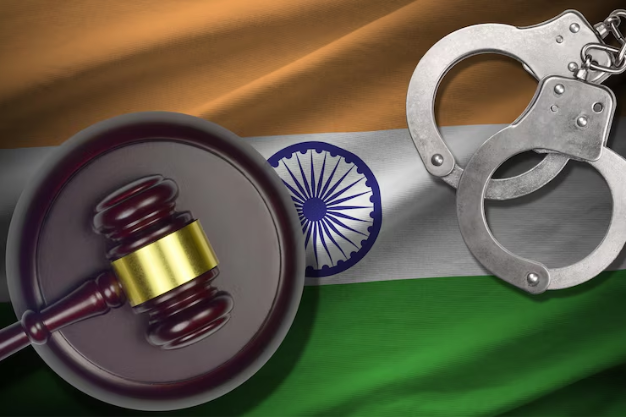
DEFENDING THE CONSTITUTION: THE ROLE OF THE JUDICIARY IN UPHOLDING FUNDAMENTAL RIGHTS IN INDIA.
In the context of a democratic polity, the judiciary assumes a cardinal role in the preservation and safeguarding of individual liberties. Serving as a bulwark against potential abuses of governmental authority, it exercises vigilance to ensure the alignment of laws and administrative actions with constitutional tenets.
In India, the Constitution serves as the foundational document dictating the functioning of the state and safeguarding basic freedoms. Central to the enforcement of these provisions are the courts, comprising the judiciary, tasked with adjudicating disputes, elucidating legal precepts, and ensuring the perpetual protection of our rights.
Foremost among the judiciary's responsibilities is the preservation of fundamental rights, encompassing the rights to life, liberty, equality, and dignity.
This mandate entails a meticulous examination of legislation to discern its implications, prioritizing equity and justice for all citizens.
Furthermore, the judiciary bears the onus of intervening when individual rights are disregarded or injustice prevails, particularly affecting marginalized segments of society. This obligation extends to adjudicating cases brought forth and proactively addressing systemic inequities.
However, these duties are not devoid of challenges. Instances may arise wherein governmental entities or influential factions attempt to circumvent legal provisions or enact laws contrary to constitutional provisions, impeding the judiciary's efficacy and impartiality.
Consequently, it is imperative for all stakeholders within the legal apparatus – including judges, legal practitioners, legislators, and citizens – to uphold the integrity of the judiciary in safeguarding our rights. By adhering to constitutional principles and safeguarding the judiciary's autonomy, we ensure the perpetual protection of individual liberties and the advancement of India as a just and equitable society.
In summary, the judiciary plays a pivotal role in upholding our rights under India's Constitution. By advocating for justice and ensuring adherence to legal frameworks, the judiciary fosters a society characterized by fairness and freedom. Let us collectively endeavor to bolster its efforts in this critical endeavor.
Protection of Individual Rights through Constitutional Mechanisms:
Constitutional Remedies: Pursuant to the Constitution of India, every citizen retains the prerogative to seek redressal through either the Supreme Court or High Court in cases of alleged infringement of Fundamental Rights.
Article 32: Empowering the Supreme Court to address violations of fundamental rights through the issuance of writs such as Habeas Corpus and Mandamus.
Article 226: Extending analogous authority to High Courts for the issuance of writs aimed at safeguarding fundamental rights.
Article 13: Facilitating judicial review to declare unconstitutional any legislation deemed to contravene constitutional provisions, thereby rendering it null and void.
Judicial Review: Ensuring Constitutional Adherence and Protection of Fundamental Rights:
Judicial review entails the authority vested in the Supreme Court (or High Courts) to scrutinize the constitutionality of enacted laws. Should the judiciary ascertain a statute's incongruity with constitutional provisions, it is deemed unconstitutional and hence invalidated. Though the term 'Judicial Review' lacks explicit mention in the Constitution, the Supreme Court's prerogative to annul legislation conflicting with fundamental rights inherently encompasses judicial review. This prerogative extends to the assessment of legislation vis-à-vis violations of fundamental rights and encroachments upon federal powers, encompassing laws enacted by both central and state legislatures.
Power Dynamics: Interplay between Judiciary, Parliament, and Persistent Conflicts in India:
Separation of Powers in Indian Democracy:
Guarding Against Subversion: The judiciary's mandate extends beyond protecting rights to pre-empting the subversion of constitutional principles through political manoeuvres.
Incorporation of Judicial Review: Matters concerning the demarcation of the President's and Governor's powers have been subsumed within the ambit of judicial review.
Doctrine of Power Separation: India's constitutional framework hinges on power separation and checks and balances, emphasizing Parliament's legislative primacy, executive's implementation prerogative, and judiciary's adjudicatory supremacy.
Supremacy of Respective Branches: This doctrine dictates that while Parliament holds precedence in legislative enactments and constitutional amendments, the executive is paramount in implementation, and the judiciary reigns supreme in dispute resolution and ensuring legislative conformity to constitutional norms.
Persisting Tensions in India: Despite delineated power separation, discord among the judiciary, executive, and legislative branches remains a recurrent motif in Indian political dynamics.
